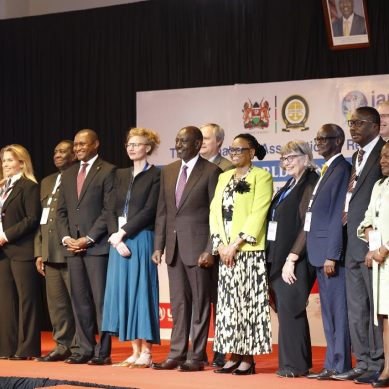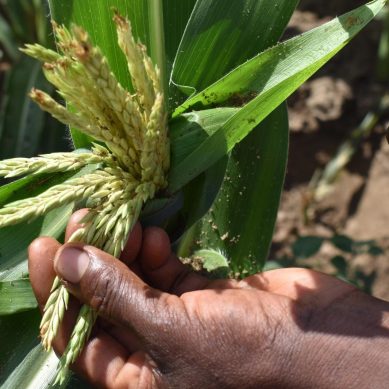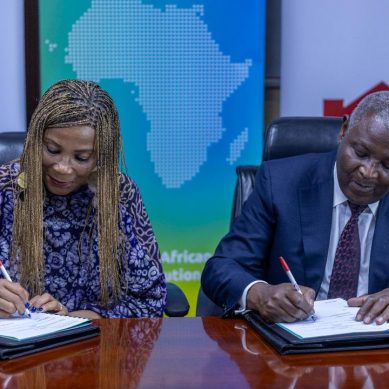
There is every reason and need for Uganda and its leadership to apply fresh thinking to environmental management and conservation of its diverse ecologies. The risk of losing what remained of the pristine ecologies is always looming, particularly because the country’s political elite is more preoccupied with looting the little that remains of the unabused environment.
The governing chiefs are eating; so busily engrossed in their eating that posterity to them sounds and tastes like a remote and hackneyed concept.
Meanwhile, in the country that was once known as the Pearl of Africa because of the beauty of its people, cultures and natural resources, whole communities miss socioeconomic development, transformation and progress because public funds are being used as money bonanzas for select individual, sometimes with political aims of votes.
Changes in the socio-cultural dimension
In the social-cultural dimension of the environment, the cultural and social structures and functions sustained for centuries by the diverse cultures and sociality of the indigenes have been systematically eroded. Land-grabbing and the settlement of an alien group of people in all parts of the country where the traditional ethnic groups of Uganda have thrived for centuries have brought into focus a well-coordinated plot to own every resource in a cultural void. They have used some misguided indigenes and some highly educated and highly placed indigenes to facilitate their population displacements, dispossessions, desocialisation and deculturalisation of whole communities.
Because the culture and sociality of traditionally-settled communities have been shaped by the total environment, the destruction of the total environment has been emphasized as the main avenue for destroying the cultures and socialities of indigenous communities and converting them into disorganized congregations of beggars and slaves. Beggars and slaves have no culture and are no longer meaningfully attached to the land. Neither can they meaningfully be involved in production or even pay taxes. This could, in part, explain the rising dependency of the Ugandan government on the dwindling donations and/or debilitating loans, which are unfortunately, being abused or stolen by politicians and government functionaries.
Besides, the pervading and permeating foreign culture of money is destroying the social and cultural fabrics of society as the government sticks to the falsehood and outmoded idea that, if money bonanzas are given to a select few individuals, community development will be achieved through a trickle-down effect. However, the majority of the money never reaches the bottom of society. Due to rising income poverty, families, extended families, clans, and whole communities are breaking up. Simultaneously, society is decaying ethically, morally, spiritually, socially, and culturally. It will be extremely difficult to rebuild it. Even leadership in the rural area, which used to be based on the culture of the people, has been systematically destroyed and replaced by NRM party leadership. This is dangerous. It decentralizes and dissociates leadership, transferring it to the NRM Party’s political leadership.
Alternative leadership is muzzled and disabled. It is worse than was the case under British colonialism. I should not forget to emphasise that it is in the sociocultural dimensions that the environment is most supersonically decaying and collapsing under the aegis of corruption-driven sociopolitics. This is eroding all kinds of justice, security and peace, specifically environmental justice, environmental security and environmental peace. It is in this dimension that society is losing through cultural, social, moral, ethical, psychological and spiritual erosions, mainly due to foreign influences.
Changes in the temporal dimension
Last but not least, the temporal (or time) dimension of the environment is deteriorating due to the increasing abuse of time, the most critical resource available (24 hours) for the country’s development, transformation, and progress. Time is central to every process of development, transformation, and progress. If it is grossly abused, as it is in Uganda, then it becomes extremely difficult to experience meaningful and effective development, transformation, and progress. When planning, implementing, monitoring, and evaluating projects and programs are done without respect for time, the results are unlikely to be the ones envisaged or else production will be consistently and persistently below capacity. The most consistent thing will be to spend money to sustain the workforce, which is increasingly unprofessional and unskilled since the selection of the workers seems to be based more on technical know- who than on resourcefulness, experience, and qualifications. The overall result is that, on a given timescale, failure superseded success (Oweyegha-Afunaduula, 2022).
Way forward
Uganda’s environments must be liberated from its capture and occupation by refugees and former refugees. If not, the invasive nomadic pastoralists’ capture and occupation of Uganda’s environments will be the ultimate fundamental change that President Tibuhaburwa Museveni did not explicitly mention when he said on January 25, 1986, “This is not a mere change of guards, but a fundamental change. “This will express itself in the total decay and collapse of Uganda’s time-tested bioecological systems, which were the basis of a thriving agricultural production system before the invasion, acquisition, and occupation by nomadic pastoralists (Oweyegha-Afunaduula,2022).
Hilary Heuler (2013), in her article “Missing the Forest for the Trees” published in the Earth Island Journal, cites me saying: “There are many places where swamps have dried up, such as in Western Uganda, where eucalyptus have sucked up all the water, I have also tried to introduce local species of plants in my own village. I have an agroforestry farm there, which contains only local species. We have some tree species that grow fast, like musizi. Even mvule can grow fast if planted among other trees. It is very good for wood, for protection of the environment, for binding the soil. But it is not being emphasised.
Institutionally and politically, our indigenous tree species are being worked against in favour of pine and eucalyptus.” Those plantations are not forests. They are biological deserts – formations that do not allow other beings to exist among them,” he says. “You won’t even find things like butterflies, snakes, and birds”
The blame should go to the practice of academicisation of management and conservation of the environment, thereby producing managers and conservators who are basically academics and hence unreal. They need to be retrained especially in view of the fact that we are in a century of new and different knowledge production, that emphasises knowledge integration and reintegration and produces more holistic knowledge workers and users. In a sentence, “It is wrong to academicize the environment and clog its Leadership and Management with academic elite or even military elites. It is important universities embrace integrative and integrating sciences which take all science as one and perceive the environment as a multidimensional concept, with the dimensions dynamically interlinked and interactive. This will lead to generation of necessary environmentally rich wisdom.
As I wrote in my article: “The sociology of Uganda’s elite and the necessary crusade for mind liberation” of July 10, 2023,” one distinguishing feature of our elites is that they are greedy and selfish and believe only today and now matters. They are not so futuristic in their thinking; meaning that they do not factor future generations in their equation, and are more oriented towards exploiting (environmental) goods and services, conquering nature, and the anti- conservation attitude is almost universally developed amongst them is the attitude that they are modern. They tend to be Westernized and both despise and have rural roots.
They are almost completely urbanised, with extremely few of them having homes in the rural areas where their ancestral homes persisted for centuries. As such they are outward-looking, with wandering minds that are more comfortable externally than internally. They need mind liberation”. I may add that so disoriented, they are unlikely to be curious enough about nature to conserve and manage it wisely for posterity as our ancestors did. They are likely to work in the interests of environmentally destructive forces.
Environmental governance and political governance are interlinked. In my article titled “Environmental Governance for Diverse Ecologies in Uganda: Is It Possible?” published by Muwado of December 1, 2023, I link environmental governance to political governance, emphasising that it is difficult to separate the two; that this is because political decision-making is central to environmental governance at all levels of decision-making; and that effective environmental governance is seen in its capacity to maintain diverse ecologies simultaneously with maintaining diverse economies.
I add that because Uganda has a diversity of ecologies, including agroecological farming systems ecologies, environmental governance should encourage the perpetuation of ecologies that support the various agroecological farming systems on which we depend for food and socioeconomic security (Oweyegha-Afunaduula, 2023). I evoke education and training policies to explain why we are doing badly in environmental governance for conservation. I state “Education and Training in Uganda is still rooted in the past; driven as it is by the disintegration of knowledge.
Therefore, the products of the education system are still disciplinary and who, therefore, see, pursue and produce knowledge disjointly. They are completely unaware of the existence of new knowledge cultures and/or systems, namely: interdisciplinarity, crossdisciplinarity, transdisciplinarity and extradisciplinarity, which are more sensitive to meaningful and effective environmental governance. Effective environmental governance requires interculturality, crossculturality, transculturality and extraculturality. Since we need critical thinkers, sustainability science, effective teamwork and future-ready professionals, we must rethink education and training policies to begin to produce people we need to govern the environment for diverse ecologies” (Oweyegha-Afunaduula, 2023).
However, I also mention that effective environmental governance will require rethinking our social, land, civil rights, governance, mining, rural development, and refugee policies, which collectively are an antithesis of effective environmental governance for conservation of our diversity of ecologies in the 21st Century and beyond.
In my article “Integrating Conservation, Biodiversity and Sustainability: The Case of Uganda” published by Nile Post” of October 19, 2023 I write:
“In Uganda, environmentally unconscious policies for industrialisation, agriculture, energy, forestry, food production and land grabbing by greedy and selfish people are delinking conservation from biodiversity and sustainability ecosystem services everywhere in the country are being violated for selfish ends at the expense of humanity. Whole ecosystems are being destroyed simultaneously with the destruction of agroecological systems. This is in total ignorance of the fact that there can be no meaningful and effective development if conservation, biodiversity and sustainability are not interconnected and integrated to maintain their interdependence”.
I add that “A lack of interdisciplinary, cross-disciplinary, transdisciplinary and nondisciplinary or extra-disciplinary scholars working on solutions-based research has been a barrier to achieving sustainability objectives in the country. Yet without achieving sustainability objectives, we are just sojourners of the century”.
In my article “Uniting Climate Justice, Cooperation, Peace and Diplomacy in Environmental Security Building” published in Daily Express Uganda of November 4, 2024 I advise that “It is time for state and nonstate actors to collaborate effectively on building environmental security for prosperity and posterity. There is no doubt that environmental security concepts are shaping the contours of global [and regional] environmental governance (e.g. Liebenguth, 2022). They must begin to be seen shaping the contours of national environmental governance as well. Later will be too late”.
Sadly, all our socio-culturally constructed life conserving bio-ecological systems are being destroyed through grandiose land grabbing of whole ecosystems, mostly by people whose human energy system is the nomadic pastoralists energy system. They have power and they have the gun. They are disintegrating, dispossessing and displacing indigenous people from land and destroying their cultures and well-being for their own greed and selfishness.
They are largely responsible for the current climate change in the country, not only through land grabbing but also the land, water, agricultural and forestry policies they make, driven by the sterile culture of money, and their own possessive and acquisitive culture of nomadic pastoralism. This culture dictates that we move from one thing to another with no indication that planning is important.
So the wellbeing of citizens has been greatly sacrificed for the narrow interests of power, domination, glory and wealth. Integral ecology does not matter. Culturally, development does not matter values-based ecological worldview does not matter. People do matter. What matter are things, power, power retention, politics, domination and the alien culture of money. We have made survival of the fittest as the cornerstone of governance and leadership in the 21st century. Such governance and leadership is genocidal. All policies and laws will tend to be designed to ensure that survival of the fittest dictates who lives and who does not. The vulnerable victims are the poor and needy. No protection in the real sense of the word (Oweyegha-Afunaduula, 2024). There is great need to specifically consider the interaction between the refugees and former refugees in the environment of Uganda. I have been environmentally and ecologically interested in the issue of refugees in the Great Lakes region since 1995 (Oweyegha-Afunaduula, 2022).
The growing refugee economy undermines Uganda’s long-term independence, citizenship, sovereignty, environmental security, , environment peace and environmental justice and unity. It is the surest tool the state is using to disempower Ugandans and put them under the continued rule and domination by former and current refugees. Most of what is happening in the social areas and in the political arena are, no doubt, explained by the loss of power and authority of bona fide Ugandans to former and current refugees with our citizenship, dual citizenship and nationality. It is not far-fetched to suggest that Uganda’s refugee economy is also a political strategy of the increasingly narrow State. (Oweyegha-Afunaduula, 2022).
There is great need for the indigenous Ugandans to be in charge of their country and its resources, as well as the enterprise of environmental management and conservation. People from foreign cultures cannot be expected to manage and conserve the environments of Uganda effectively because they have no historical, biological, ecological, psychological, moral, ethical and spiritual links with them They manifest as environmental pollutants.
Last but not least, instead of political cadres, we shall need a new cadre of environmentally-literate, environmentally conscious and environmentally sensitive elites generated from the alternative sciences of interdisciplinary science, crossdisciplinary science transdisciplinarity science and extradisciplinary science. These will be the one we shall rely on for meaningful and effective environmental leadership and governance in the 21st century and beyond. Without them we can forget meaningful and effective environmental management and conservation this century and beyond. The universities must quickly transform themselves into integrating and integrative universities of the 21st century and beyond. They prepare themselves to be the 21st century academic and environmental dinosaurs if they continue to ignore the wind of change in science that is favouring the integrating and integrative sciences of interdisciplinarity, crossdisciplinarity, transdisciplinarity and extradisciplinarity.
For God and country
Tell report / By Oweyegha-Afunaduula / Environmental Historian and Conservationist Centre for Critical Thinking and Alternative Analysis (CCTAA), Seeta, Mukono, Uganda.
About the Centre for Critical Thinking and Alternative Analysis (CCTAA)
The CCTAA was innovated by Hyuha Mukwanason, Oweyegha-Afunaduula and Mahir Balunywa in 2019 to the rising decline in the capacity of graduates in Uganda and beyond to engage in critical thinking and reason coherently besides excellence in academics and academic production. The three scholars were convinced that after academic achievement the world outside the ivory tower needed graduates that can think critically and reason coherently towards making society and the environment better for human gratification. They reasoned between themselves and reached the conclusion that disciplinary education did not only narrow the thinking and reasoning of those exposed to it but restricted the opportunity to excel in critical thinking and reasoning, which are the ultimate aim of education. They were dismayed by the truism that the products of disciplinary education find it difficult to tick outside the boundaries of their disciplines; that when they provide solutions to problems that do not recognise the artificial boundaries between knowledges, their solutions become the new problems. They decided that the answer was a new and different medium of learning and innovating, which they characterised as “The Centre for Critical Thinking and Alternative Analysis” (CCTAA).
Some Further Reading
Byarugaba, Foster and F.C. Oweyegha-Afunaduula (1995). Environmental Refugees in Africa: Some Suggestions for Future Actions. Department of Political Science and Public Administration, Makerere University, 1995. 63 pages. Goggle Book https://books.google.co.ug/books/about/Environmental_Impact_of_Refugees_in_Afri.html?id=RM8wPwAACAAJ&redir_esc=y Visited on 17 November 2024 at 10.19am EAT
Hilary Heuler (2013). Missing the Forest for the Trees. IN: Earth Island Journal.
Oweyegha-Afunaduula (1994). Towards Environmentally Conscious Curriculum Design at Makerere University, Uganda. In Dialogue, Uganda, Kampala. Vol 1 (1): 30-33.
Oweyegha-Afunaduula (2011). The Mabira Rain Forest: Water, Energy and Food Security in Uganda. Nexus, Nexus Blog, https://www.water-energy-food.org/ru/news/nexus-blog-the-mabira-rainforest-water-energy-and-food-security-in-uganda Visited on 17 November 2024 at 10.31 am EAT
Oweyegha-Afunaduula (2022). Uganda’s Refugee Economy and its Linkage to State Interests. Netizen Posts, June 23 2022. https://netizenposts.com/2022/06/23/prof-oweyegha-afunaduula-ugandas-refugee-economy-and-its-linkage-to-state-interests/ Visited on 19 November 2024 at 9.38 am EAT.
Oweyegha-Afunaduula (2022). How Refugees and Former Refugees are Destroying the Environment in Uganda. The Kampala Report, November 30, 2022, https://www.thekampalareport.com/talk-back/2022113021674/how-refugees-and-former-refugees-are-destroying-the-environment-in-uganda.html Visited on 19 November 2024 at 9.06 am EAT.
Oweyegha-Afunaduula (2023). Environmental Governance for Diverse Ecologies in Uganda: Is It Possible? MUWADO, December 1 2023. https://muwado.com/environmental-governance-for-diverse-ecologies-in-uganda-is-it-possible/?v=2a0617accf8b Visited on 17 November 2024 at 9.38am EAT
Oweyegha-Afunaduula (2023). Integrating Conservation, Biodiversity and Sustainability: The Case Of Uganda. Nile Post, 19 October 2023. https://nilepost.co.ug/opinions/175193/integrating-conservation-biodiversity-and-sustainability-the-case-of-uganda Visited on 17 November 204 at 10:35 am EAT.
Oweyegha-Afunaduula (1923). Is it right to academicise the environment, its leadership and management? Uganda Radio Network, August 6 2023. https://ugandaradionetwork.com/s/is-it-right-to-academicize-the-environment-its-leadership-and-management/ Visited on 18 November 2024 at 17. 10 pm EAT
Oweyegha-Afunaduula (2024). Why well-being of people, society is ever plummeting in Uganda. Ultimate News, March 11, 2024. https://ultimatenews.co.ug/2024/03/oweyegha-afunaduula-why-well-being-of-people-society-is-ever-plummeting-in-uganda/ Visited on 19 November 2024
Oweyegha-Afunaduula (2024). Uniting Climate Justice, Cooperation, Peace and Diplomacy in Environmental Security Building. In: Daily Express Uganda November 4, 2024. https://dailyexpress.co.ug/2024/11/04/uniting-climate-justice-cooperation-peace-and-diplomacy-in-environmental-security-building/ Visited on 17 November 2024 at 10.48am EAT







